

1 (336) 871-2334

5086 NC HWY 704 Sandy Ridge,NC.

Effective Through Teamwork

Welcome to the Official Website for the Northeast Stokes Fire & Rescue, Sandy Ridge, North Carolina
The firefighters proudly serve the citizens of the Northeast Stokes fire district



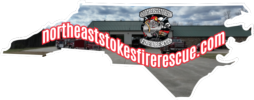
ALL CONTENT, INCLUDING ALL IMAGES AND PHOTOGRAPHY
EXCEPT AS SPECIFICALLY NOTED, IS PROPERTY OF
NORTHEAST STOKES VOLUNTEER FIRE & RESCUE.
CONTENT PROUDLY MAINTAINED BY A VOLUNTEER
Contact Information
To Contact Chief Clark, Click link below to Email. To contact ASST. Chief Webb, Click link below to Email.




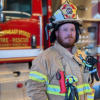

ALL CONTENT, INCLUDING ALL IMAGES AND PHOTOGRAPHY
EXCEPT AS SPECIFICALLY NOTED, IS PROPERTY OF
NORTHEAST STOKES VOLUNTEER FIRE & RESCUE.
CONTENT PROUDLY MAINTAINED BY A VOLUNTEER
Contact Information
To Contact Chief Clark, Click link below to Email. To contact ASST. Chief Webb, Click link below to Email. To Contact the Firehouse, Click link below to




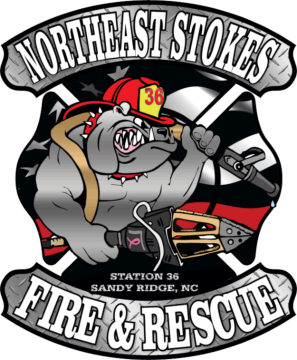


Family Safety Tips:
Large Appliances
The area underneath and behind your washer and dryer units should be cleared of dust and stray materials and the
dryer vent should also be cleaned. Refrigerators present the extra job of cleaning the condenser coils at the back.
The coils collect dust and grime and need to be wiped clean or vacuumed to keep the condenser functioning. If you
have a self-defrosting unit remember to empty and clean the tray at the bottom of the unit.
Small Appliances
Appliances throughout your home should be cleared of dust and grime that has collected on both the units and their
electrical cords. Grease should be removed from the outside of kitchen appliances with a slightly damp rag.
The grease pan underneath the toaster oven should be cleaned.
Electrical Cords
Check the cords of your washer and dryer units, television, stereo system, computer and small appliances
such as the coffee pot, microwave and toaster oven. The cords should not be frayed, split or bare and should
be unplugged and wiped clean with a dry cloth. Any frayed, split or bare electrical cords that you find
while cleaning should be repaired or replaced to avoid the danger of electrical fires. Systems such as
stereos, computers and televisions, which have multiple electrical cords, should be connected through a
power strip with a circuit breaker protection to avoid overloading a single electric outlet. Make sure that
cords are placed at least 2-3 inches away from the wall and are not run underneath rugs.


Safety tips for the whole family
Families evolve a lot over the years, but there are some family safety tips that apply to everyone. These tips stay
relevant from the first day home with a newborn to your first day as an empty nester.
How to keep things safe at home
Be ready to administer first aid: First aid kits are essential for all households. Stock up on everything from
bandages and antiseptic to pain relievers and tweezers. Keep your kit in a central location, and check it every few
months to make sure it’s stocked and that nothing has expired.
Prevent household poisonings: Anything from a household cleaner to a prescription
medication can lead to accidental poisoning. Use our poison-proofing guide to
protect your home.
Know what to do if there is a poisoning: Make sure everyone in your home knows where the number for
poison control is and when to call 911. Most importantly, call for help immediately and don’t induce vomiting unless
directed to do so. Get more details in our Local Poison Control Resources.
Get rid of tripping hazards: Falls are common for family members of any age, but they can be avoided with
a little preparation. Protect pets and youngsters from stairs with a baby gate. Secure cords and wires that cross over
walkways. Use rug pads to keep rugs in place.
Be prepared for emergencies: Whether it’s a natural disaster or a home fire, your family has a better chance
of getting out unscathed if you plan in advance. Make a family emergency plan, create a fire escape plan, and run
drills so everyone knows what to do in an emergency.
How to keep things safe outside
Set boundaries: We’re talking rules for outdoor play and literal boundaries. Make sure pets and kiddos won’t
run into any hazards like a pool, pond, trench, or other potential problem area. If you don’t have a full fence, look
into moveable “pens” that you can set up as needed for younger children and pets.
Protect the pool: If you have a pool, make sure kids can’t access it on their own. Add a gate, a lock, or a motion
sensor that will let you know if someone’s trying to sneak in a swim. Get more pool safety resources in our
complete guide.
Lock up tools and chemicals: Pesticides, fertilizer, and garden tools can be dangerous for anyone. Always
put them away after use in a locked shed or storage container where they can’t be accidentally discovered.














Effective Through Teamwork
5086 NC HWY 704 Sandy Ridge,NC.

Welcome to the Official Website for the
Northeast Stokes Fire & Rescue, Sandy Ridge, NC
The firefighters proudly serve the
citizens of the Northeast Stokes fire district

1 (336) 871-2334





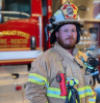

Contact Information
To Contact Chief Clark, Click link below to Email. To contact ASST. Chief Webb, Click link below to Email. To Contact the Firehouse, Click link below to Email.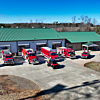
ALL CONTENT, INCLUDING ALL IMAGES AND PHOTOGRAPHY
EXCEPT AS SPECIFICALLY NOTED, IS PROPERTY OF
NORTHEAST STOKES VOLUNTEER FIRE & RESCUE.
CONTENT PROUDLY MAINTAINED BY A VOLUNTEER
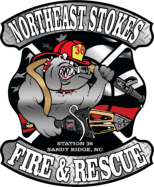






Small Appliances
Appliances throughout your home should be cleared
of dust and grime that has collected on both the units
and their electrical cords. Grease should be removed
from the outside of kitchen appliances with a slightly
damp rag. The grease pan underneath the toaster
oven should be cleaned.
Large Appliances
The area underneath and behind your washer and
dryer units should be cleared of dust and stray
materials and the dryer vent should also be cleaned.
Refrigerators present the extra job of cleaning the
condenser coils at the back. The coils collect dust
and grime and need to be wiped clean or vacuumed
to keep the condenser functioning. If you have a
self-defrosting unit remember to empty and clean the
tray at the bottom of the unit.
Electrical Cords
Check the cords of your washer and dryer units,
television, stereo system, computer and small
appliances such as the coffee pot, microwave and
toaster oven. The cords should not be frayed, split or
bare and should be unplugged and wiped clean with
a dry cloth. Any frayed, split or bare electrical cords
that you find while cleaning should be repaired or
replaced to avoid the danger of electrical fires.
Systems such as stereos, computers and televisions,
which have multiple electrical cords, should be
connected through a power strip with a circuit
breaker protection to avoid overloading a single
electric outlet. Make sure that cords are placed at
least 2-3 inches away from the wall and are not run
underneath rugs.
Family
Safety Tips:

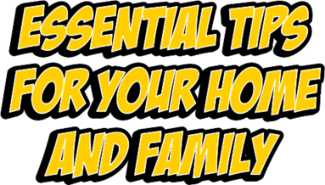
Safety tips for the
whole family
Families evolve a lot over the
years, but there are some family
safety tips that apply to
everyone. These tips stay
relevant from the first day home
with a newborn to your first day
as an empty nester.
How to keep things safe
at home
Be ready to
administer first aid:
First aid kits are essential for all
households. Stock up on
everything from bandages and
antiseptic to pain relievers and
tweezers. Keep your kit in a
central location, and check it
every few months to make sure
it’s stocked and that nothing
has expired.
Prevent household
poisonings:
Anything from a household
cleaner to a prescription
medication can lead to
accidental poisoning. Use our
poison-proofing guide to
protect your home.
Know what to do if
there is a poisoning:
Make sure everyone in your
home knows where the number
for poison control is and when
to call 911. Most importantly,
call for help immediately and
don’t induce vomiting unless
directed to do so. Get more
details in our Local Poison
Control Resources.
Get rid of tripping
hazards:
Falls are common for family
members of any age, but they
can be avoided with a little
preparation. Protect pets and
youngsters from stairs with a
baby gate. Secure cords and
wires that cross over walkways.
Use rug pads to keep rugs
in place.
Be prepared for emergencies:
Whether it’s a natural disaster or a home fire, your
family has a better chance of getting out unscathed if
you plan in advance. Make a family emergency plan,
create a fire escape plan, and run drills so everyone
knows what to do in an emergency.






How to keep things safe outside
Set boundaries:
We’re talking rules for outdoor play and literal
boundaries. Make sure pets and kiddos won’t run
into any hazards like a pool, pond, trench, or other
potential problem area. If you don’t have a full fence,
look into moveable “pens” that you can set up as
needed for younger children and pets.

Protect the pool:
If you have a pool, make sure kids can’t access it on
their own. Add a gate, a lock, or a motion sensor that
will let you know if someone’s trying to sneak in a
swim. Get more pool safety resources in our
complete guide.

Lock up tools and chemicals:
Pesticides, fertilizer, and garden tools can be
dangerous for anyone. Always put them away after
use in a locked shed or storage container where they
can’t be accidentally discovered.

































































































